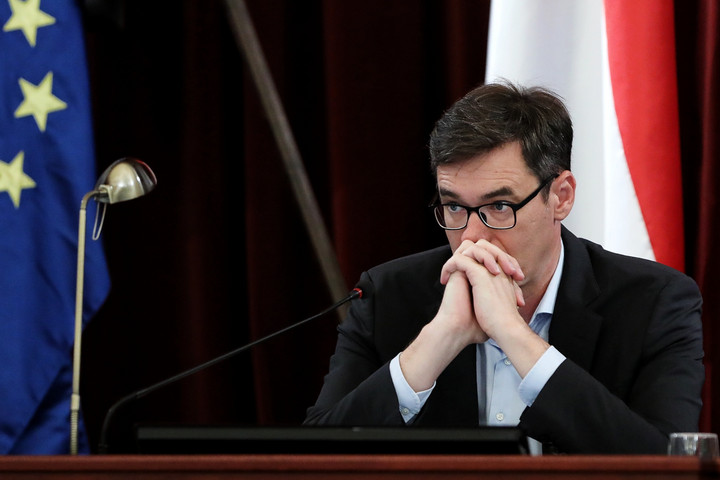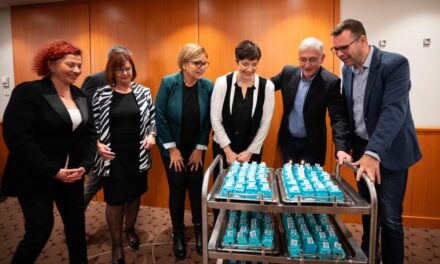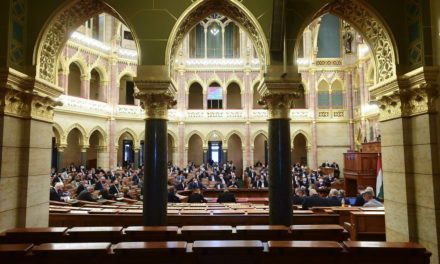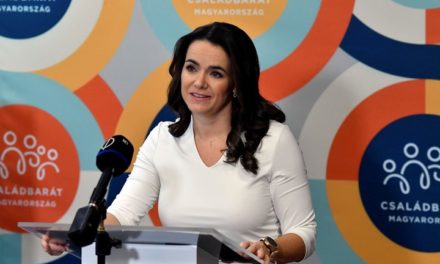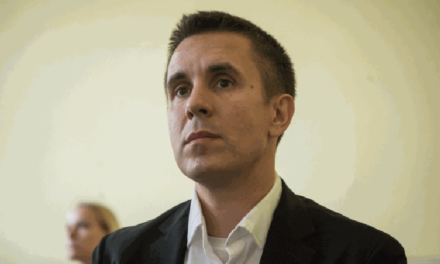The Metropolitan Municipality held an extraordinary general assembly. It was also extraordinary from the point of view that it was not only the beginning of the war, but also the first time since the parliamentary elections that the representatives of the capital met.
Even before the beginning of the assembly, it was revealed that Mayor Gergely Karácsony tried to influence the elections. In his interview with Telex, he admitted that he hid it in reference to the elections: he wants to permanently close a significant section of the Pest wharf to cars, which could cause traffic jams in the city to become permanent.
"For example, during the planning of the lower wharf in Pest, the previous professional decision was that the section south of the Chain Bridge would be completely car-free. I had to wait until this week to announce this, realizing that the campaign might not be the best time for it," said the mayor. Karácsony, who promotes transparency, did not consult with anyone: "There was no discussion about this, I simply tried to avoid this type of conflict, there was enough of it without it."
The convening of the extraordinary meeting was necessary because, prior to the election, mayor Gergely Karácsony wanted to exempt the general assembly from national politics, similar to his predecessor, István Tarlós, so the meeting was canceled at the end of March.
The meeting began with a short silent commemoration, in memory of Andrea Szolnoki, former deputy mayor responsible for health and social policy, who passed away in February. Of course, the words of both the left and the civil side evaluating the election could not be left out of the speeches before the agenda, as the opening of the meeting, Mayor Gergely Karácsony spoke on this matter. The representatives of the parliament from the capital, elected on April 3, were also present in the room, except for one, because interestingly, Mónika Dunai, in the colors of the Fidesz-KDNP in the XVII. the invitation of the winning representative in the district somehow got mixed up.
In his evaluation, Gergely Karácsony highlighted that there are two reasons for the calculation, one is the parliamentary election, and the other is that the elected leadership of the city is at half-time. During the evaluation of the election, Karácsony thanked everyone for their participation and emphasized that the population of the capital saw the type of government needed differently, and the countryside differently. According to the mayor, this triggered a variety of thoughts in many people, but Budapest is not a city-state, and it still does not want to be one.
Gergely Karácsony painted a modest picture of what to expect in the remaining two and a half years. Regarding the budget, he said that it contains a loan of thirty billion and a request for state aid of twenty billion. In line with this idea, of course, the mayor continued his two-and-a-half-year-old mantra, according to which the capital and the left-wing districts are drained of blood, and if the state can get into debt, so can the capital.
The comment that Karácsony made towards the end of his speech was particularly interesting: "We always want to give our beloved city more than our abilities and possibilities allow, so we must work on developing our possibilities." With this, the mayor indirectly admitted that instead of developing their abilities, they want to fix Budapest's problems with more money.
On behalf of the Fidesz-KDNP faction, Zsolt Wintermantel reacted to the election results and the words of Gergely Karácsony. "A high turnout always means a strong authorization," said the representative, and then added: everyone should learn from the results, even for the Gyurcsány-like wired left that is running big in Budapest. Wintermantel pointed out: although, as can be observed in many other places in the world, the capital is pulling to the left, we should not ignore the strengthening of Fidesz-KDNP in the capital either, since the difference is only seven percent.
The representative reminded the mayor that he really likes to stand up for freedom of the press and human dignity at the level of words, yet he does not answer the questions of the press, and he has not held Budapest info since his election. According to Zsolt Wintermantel, the same qualification is echoed when he evaluates the election as if there is one more city where the flag of freedom is flying, and then he asks Gergely Karácsony: "Would this be your freedom, is this your democracy?" Mayor, what kind of flag is flying in Rákosment? Or has freedom already ceased there, there is no longer democracy there?"
Wintermantel reminded Karácsony that the people entrusted him with the leadership of Budapest, not with an amateur involvement in national politics, and then added: "I understand that until now you thought that time was working for you. The hourly wages paid by the citizens of Budapest and yes, all tax-paying citizens of the entire country are just a bit high."
Source: Magyar Hírlap
Author: Márton Brém-Nagy
Picture: Róbert Hegedűs

